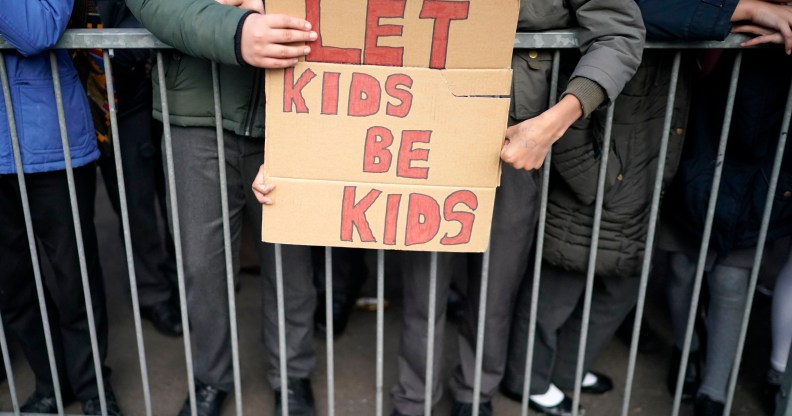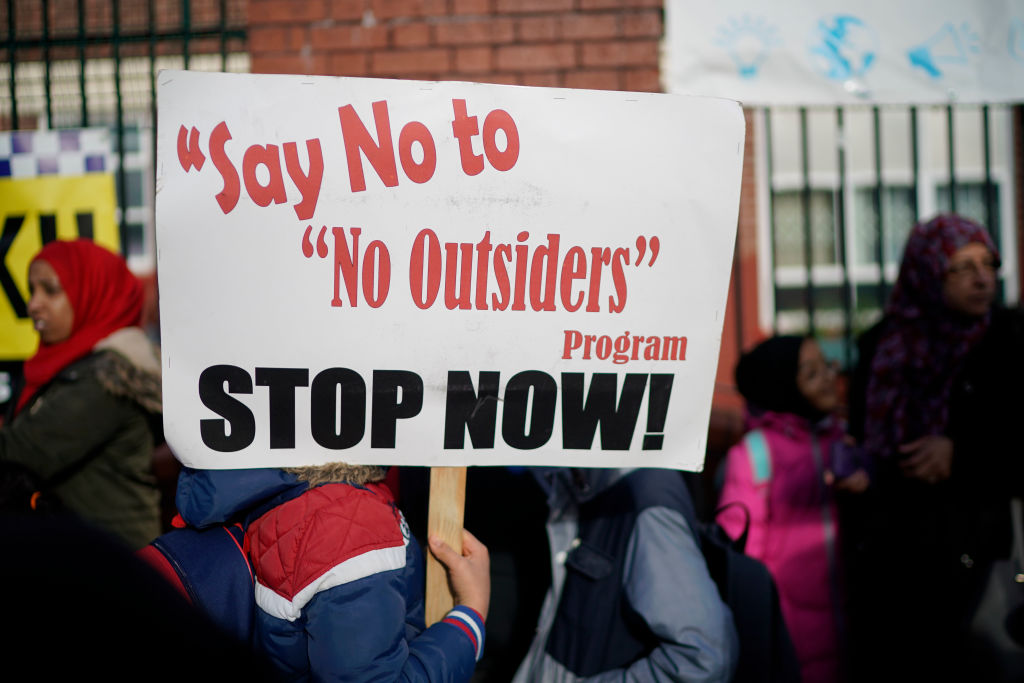Almost half of Britons don’t want their children to learn it’s OK to be gay, disturbing study finds

Protesters demonstrate against the LGBT-inclusive ‘No Outsiders’ programme in Birmingham last year (Christopher Furlong/Getty)
Most people in Britain claim to be accepting of lesbian, gay and bisexual people, but around 40 per cent still don’t want their children to be told it’s acceptable.
A survey by research company Kantar found that over 90 per cent of the public are happy to have gay or bisexual people as colleagues, neighbours and leaders, yet four in 10 would not want six-year-olds to be taught it’s OK to be gay.
The shocking contradiction was revealed as LGBT-inclusive sex and relationships education classes become mandatory in all schools across the country.
“In the UK, we have come a long way, but this study shows that social progress is not guaranteed,” said Craig Watkins, UK chief executive of Kantar, in a statement to Reuters.
“Although we see high levels of comfort of LGB people in community leadership roles, notable proportions of people have concerns about the education of children.”
In March 2019 an overwhelming majority of MPs voted for mandatory LGBT-inclusive education after a number of religious conservative parents in Birmingham protested against diversity teaching and pulled their children out of classes.
Beginning with the new September school term, all secondary schools in England are now required to teach about sexual orientation and gender identity, while primary schools will teach about different families, including LGBT+ families.
The curriculum will adapt according to the pupils’ age, with schools ensuring that their teaching is “sensitive and age appropriate”. The guidance states that schools must consult parents in developing and reviewing their policy, but parents are not allowed to opt out of the classes.

Protestors demonstrate against the LGBT-inclusive ‘No Outsiders’ programme at Parkfield Community School on March 21, 2019 in Birmingham. (Christopher Furlong/Getty)
National and international research has proven the benefits of such education, including less risky sexual behaviour, teenagers waiting until they’re older to have sex for the first time, increased use of contraception and improved attitudes towards sexual and reproductive health.
The head of Ofsted, Chief Inspector Amanda Spielman, has previously expressed her support for the move.
“It’s making sure they know just enough to know that some people prefer not to get married of someone of the opposite sex, and sometimes there are families that have two mummies or two daddies,” she said at the time.
“It’s about making sure that children who do happen to realise that they themselves may not fit a conventional pattern know that they’re not bad or ill.”
But the Kantar research suggests that many parents remain concerned about LGBT-inclusive classes, and Watkins called on the government to do more to bring them on board with the changes.
“If you take the events in Birmingham we saw a visceral reaction to it from parents that the government needs to be thinking about, because that is not an outlier view,” he said.

